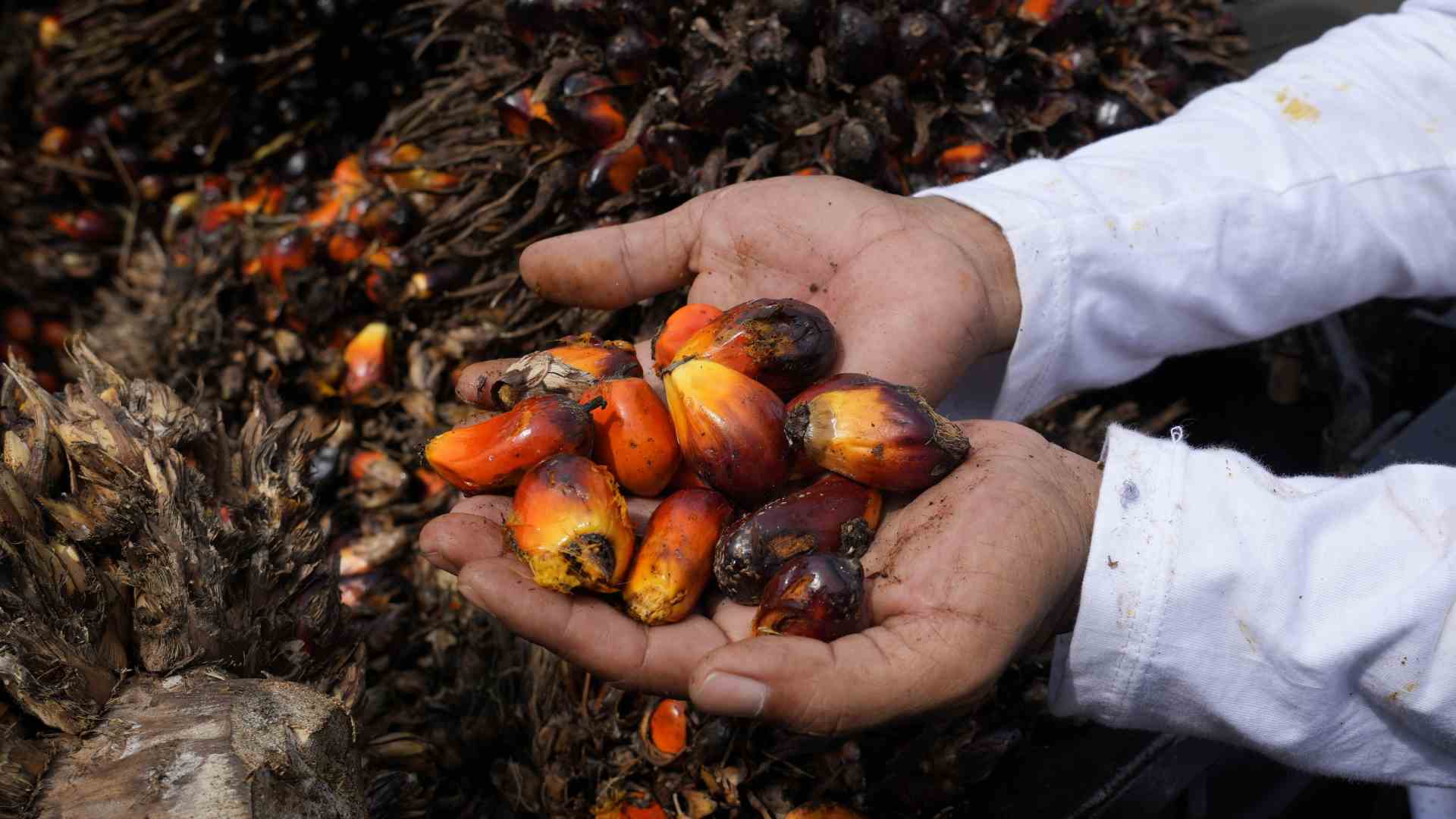Status: 05/19/2022 2:02 p.m
The world’s largest exporter of palm oil has released its exports again. In Germany, the price of the coveted plant oil has recently increased by around 73 percent – the confectionery industry is alarmed.
Indonesia plans to lift its palm oil export ban on Monday. The situation regarding the supply of domestic cooking oil has improved, President Joko Widodo justified the step. The decision to lift the export ban was also made because the government has the welfare of the 17 million workers in the palm oil industry in mind, the president said in a video statement.
He announced the ban on April 22nd, it came into effect on April 28th. Widodo justified it with the supply in his own country in order to dampen the rising prices for domestic cooking oil. In Indonesia, palm oil, which is mainly used to prepare food there, has been in short supply since November. At that time, exports rose sharply due to higher world market prices.
Farmers protested against lack of demand
The government in Jakarta feared social unrest because of the palm oil shortage. In January it already limited the export of palm oil. A price limit has been set in their own country. In April, Widodo announced aid payments to the poorest to be able to buy oil.
Palm oil accounts for more than a third of the global vegetable oil market, with Indonesia accounting for around 60 percent of the supply. “The average price of (loose) cooking oil was 19,800 rupiah per liter before the export ban in April,” Widodo said. “After the ban, it fell to around 17,200 to 17,600 rupiah per liter.”
The price was originally supposed to drop to 14,000 rupiah (around EUR 0.90) before a decision was made to lift the export ban on palm oil. The pressure for an earlier easing had recently increased, however, as farmers protested the lack of demand for their palm fruits.
Market share around 40 percent
Palm oil is the world’s most produced, consumed and traded vegetable fat. Its market share is around 40 percent. It is ecologically controversial, but is more versatile than any other vegetable raw material – whether in chocolate, biscuits, margarine, instant soup, ice cream, pizza, shaving cream or shampoo. Almost every second product on the supermarket shelf contains palm oil.
According to estimates by the US Department of Agriculture, a total of 77 million tons will be produced this year. So far, Indonesia has supplied 60 percent of global demand. Malaysia is number two with a market share of 25 percent. The biggest buyers are India, China, Pakistan and Bangladesh.
For the past two years, the coronavirus pandemic has impacted harvests as labor migration in Southeast Asia’s plantations has been restricted.
Prices increased by 73.3 percent
In Germany, sharply rising prices for raw materials and energy as well as delivery problems are affecting the confectionery industry, which is characterized by medium-sized companies. In April alone, the prices for palm oil rose by 73.3 percent, the industry association BDSI complained.
The Ukraine war is now exacerbating the situation drastically. “These burdens, which have never been seen before in this form, affect companies across the board and more and more often to an extent that threatens their very existence.”

